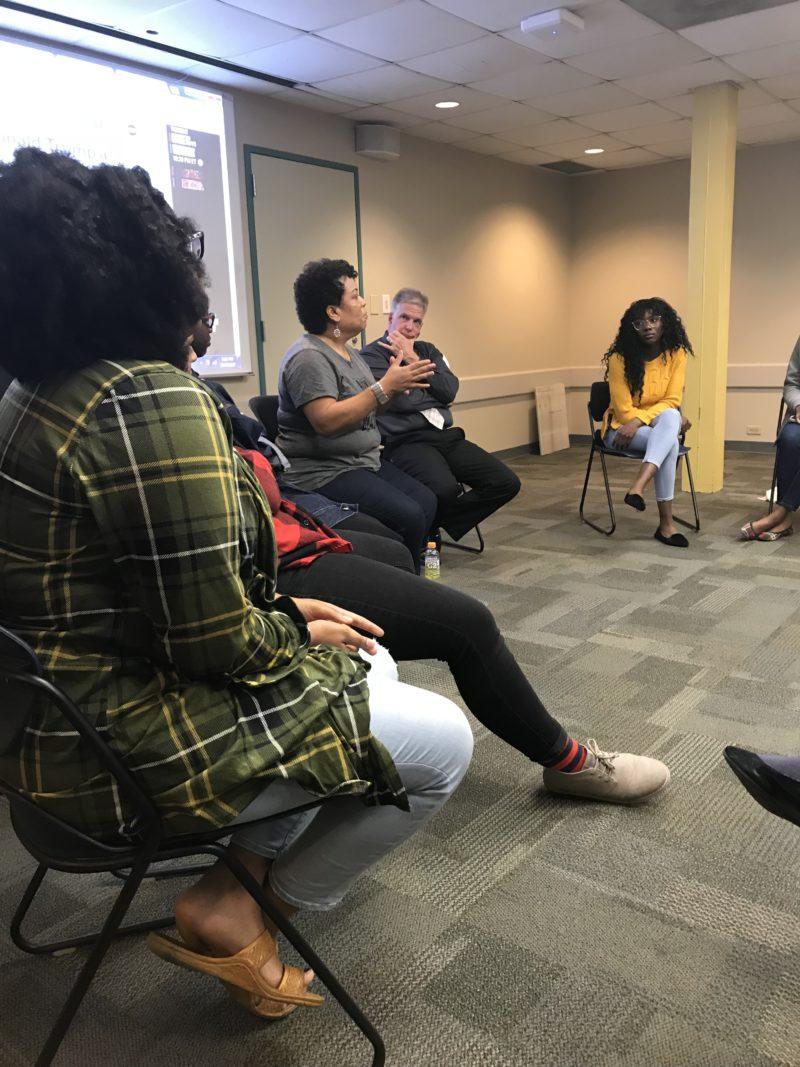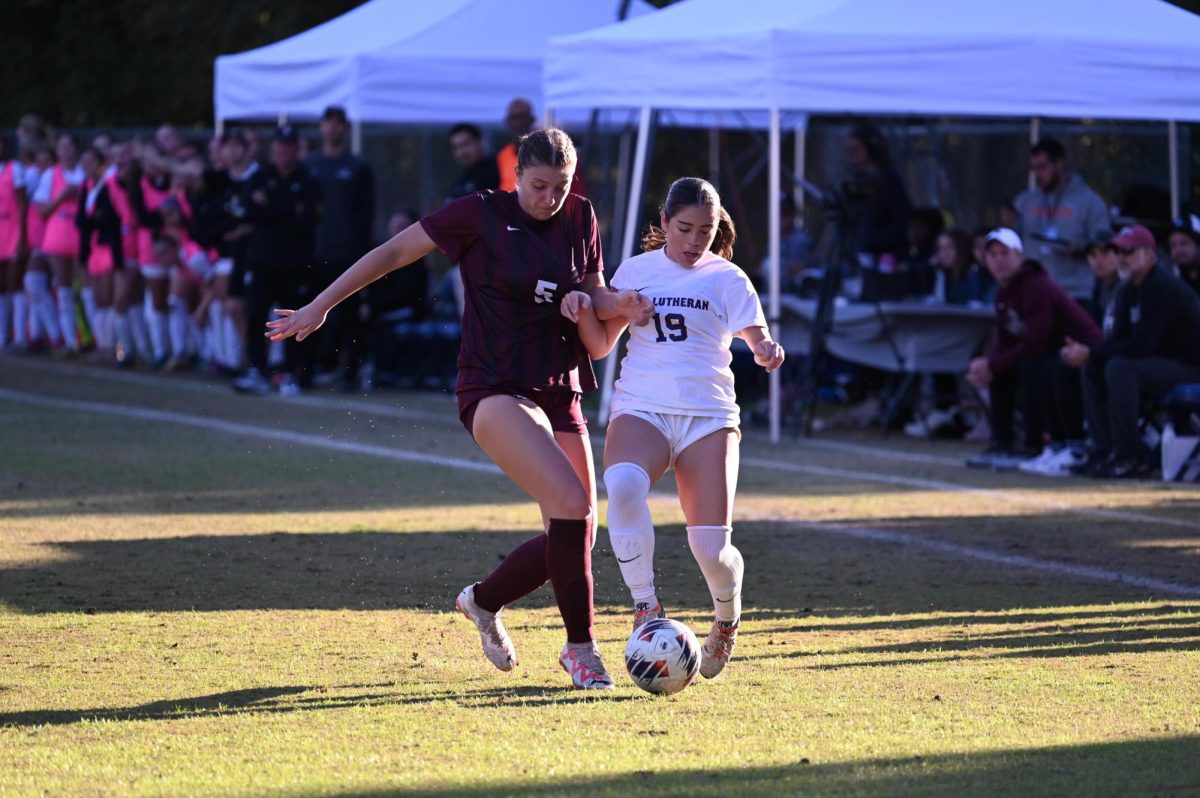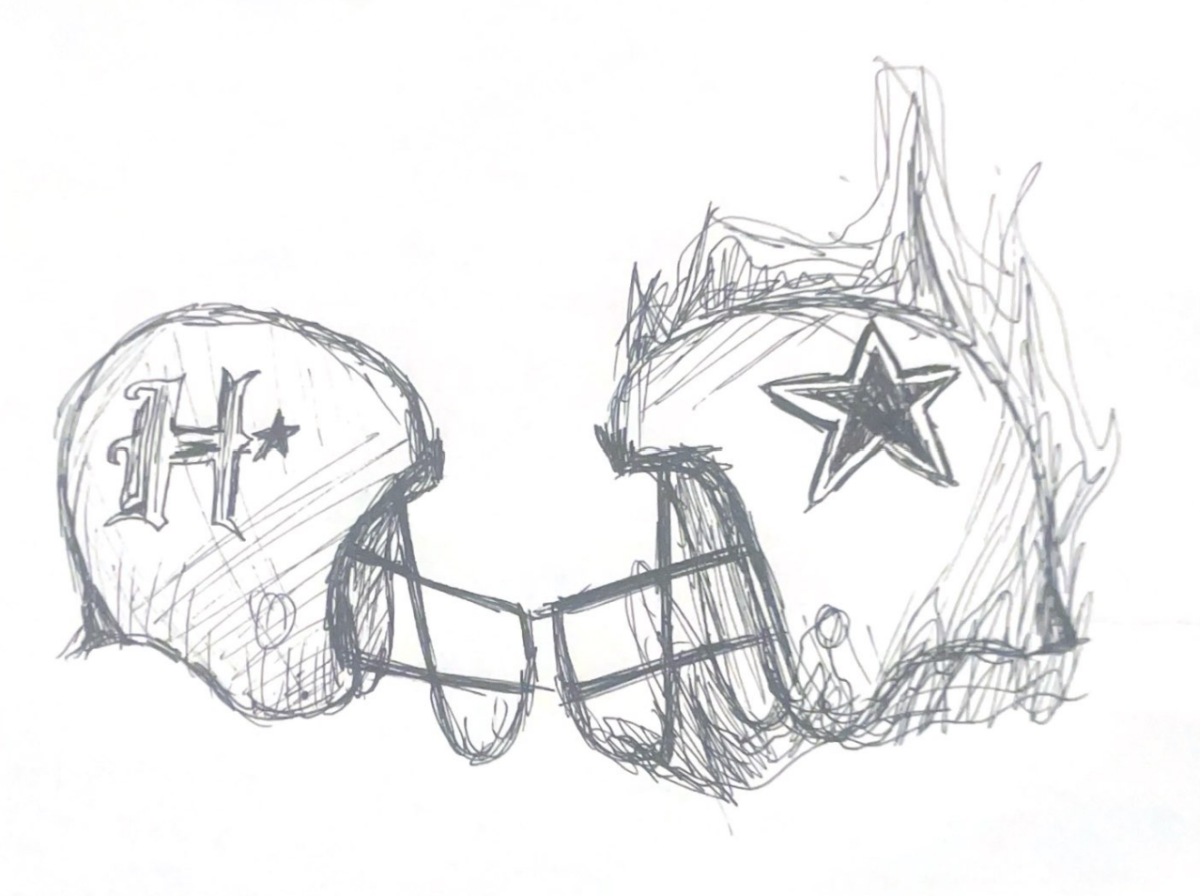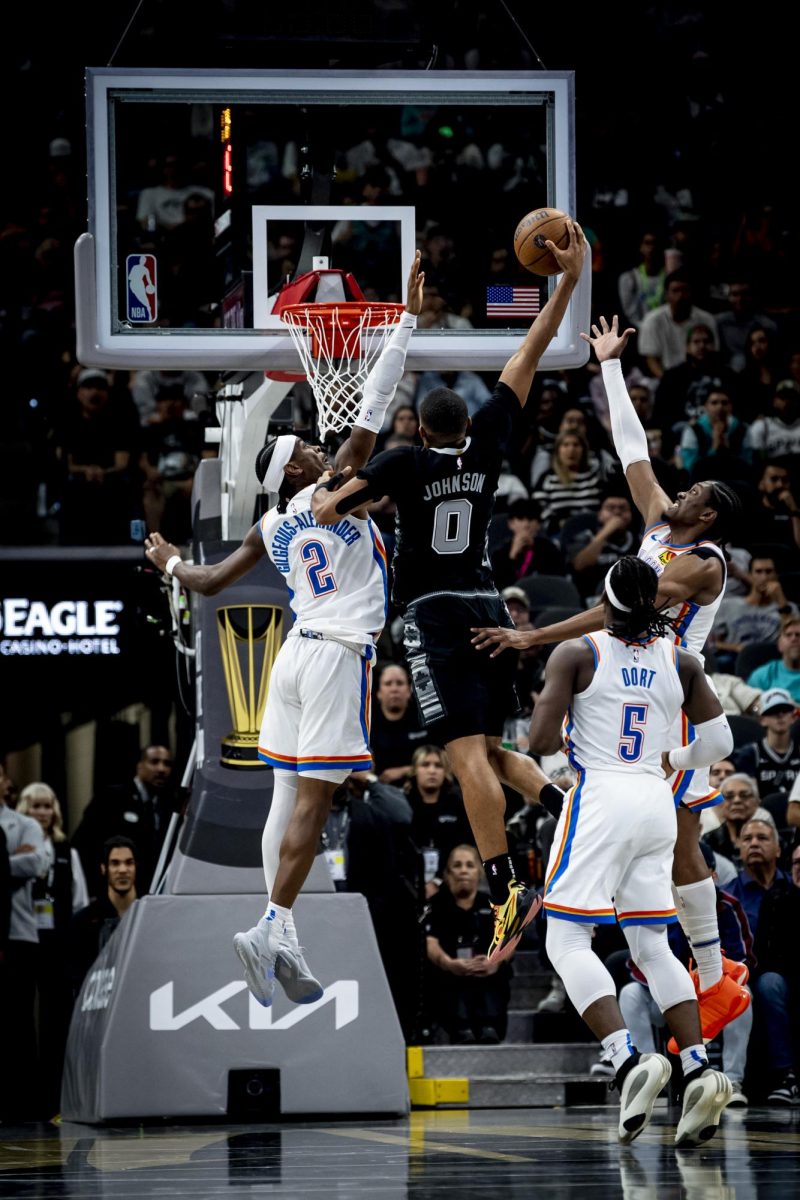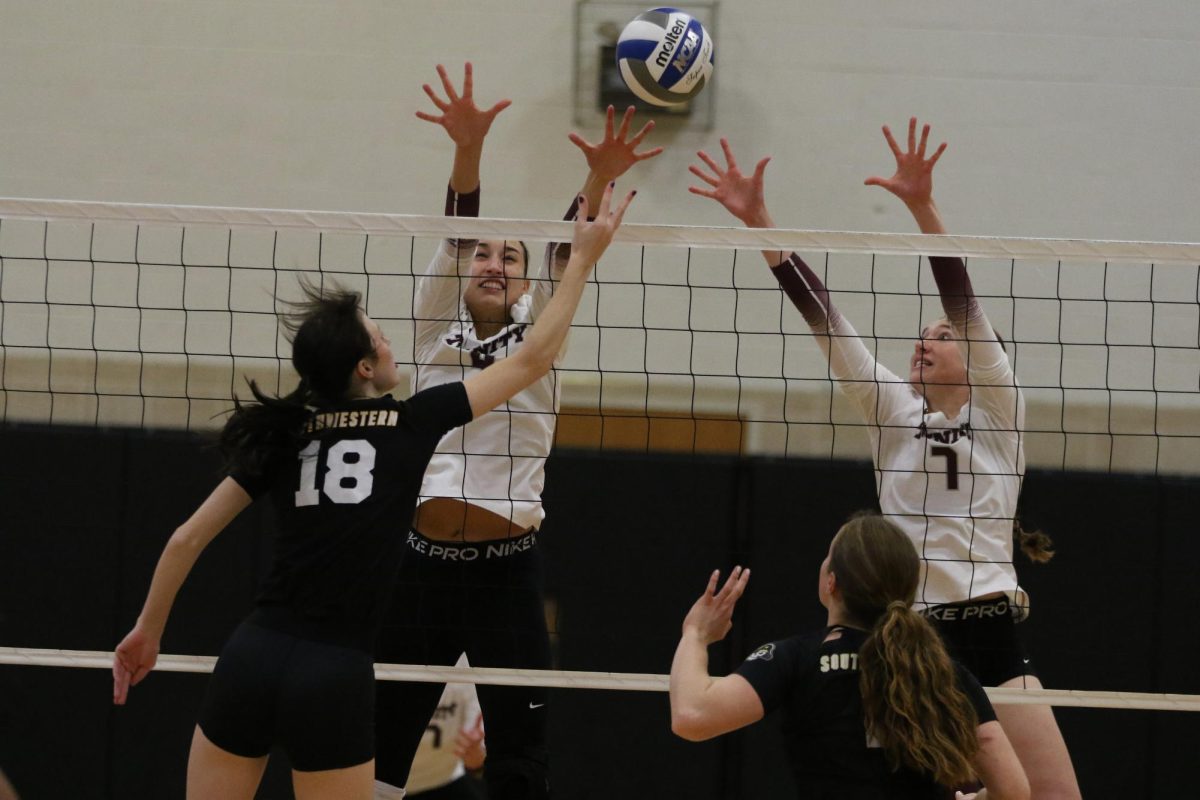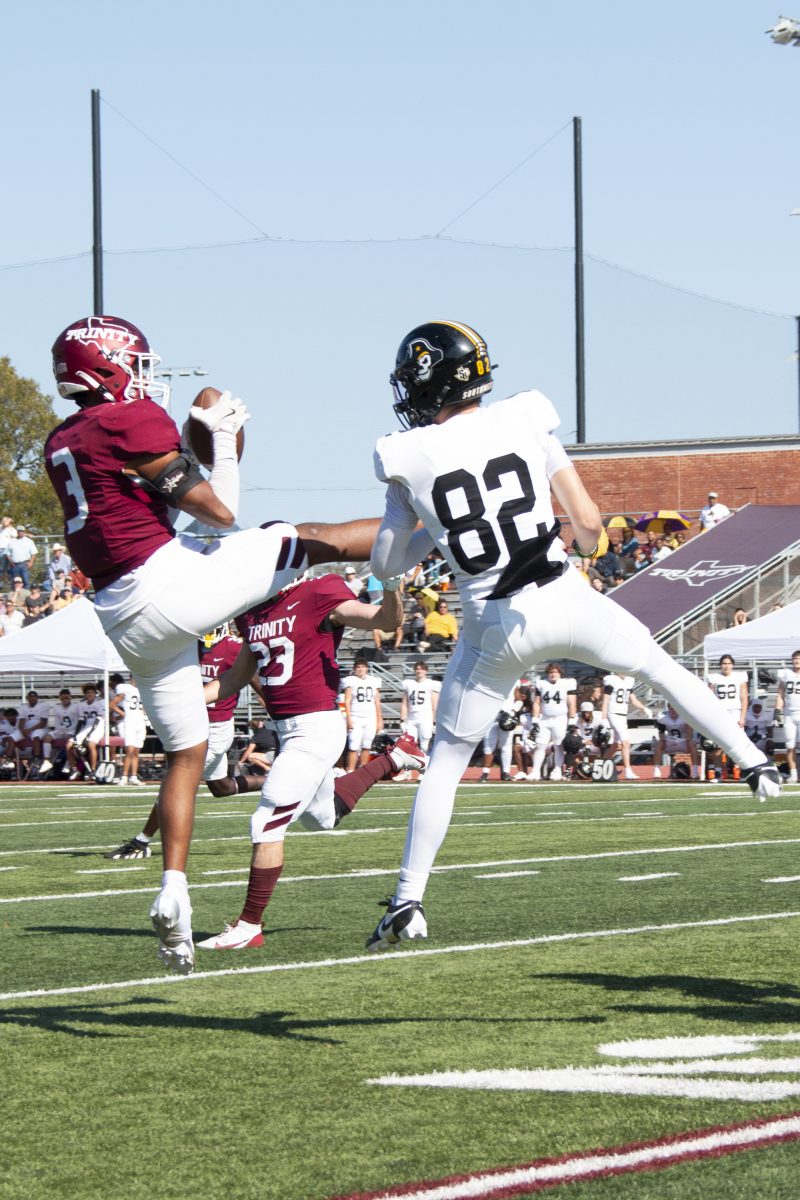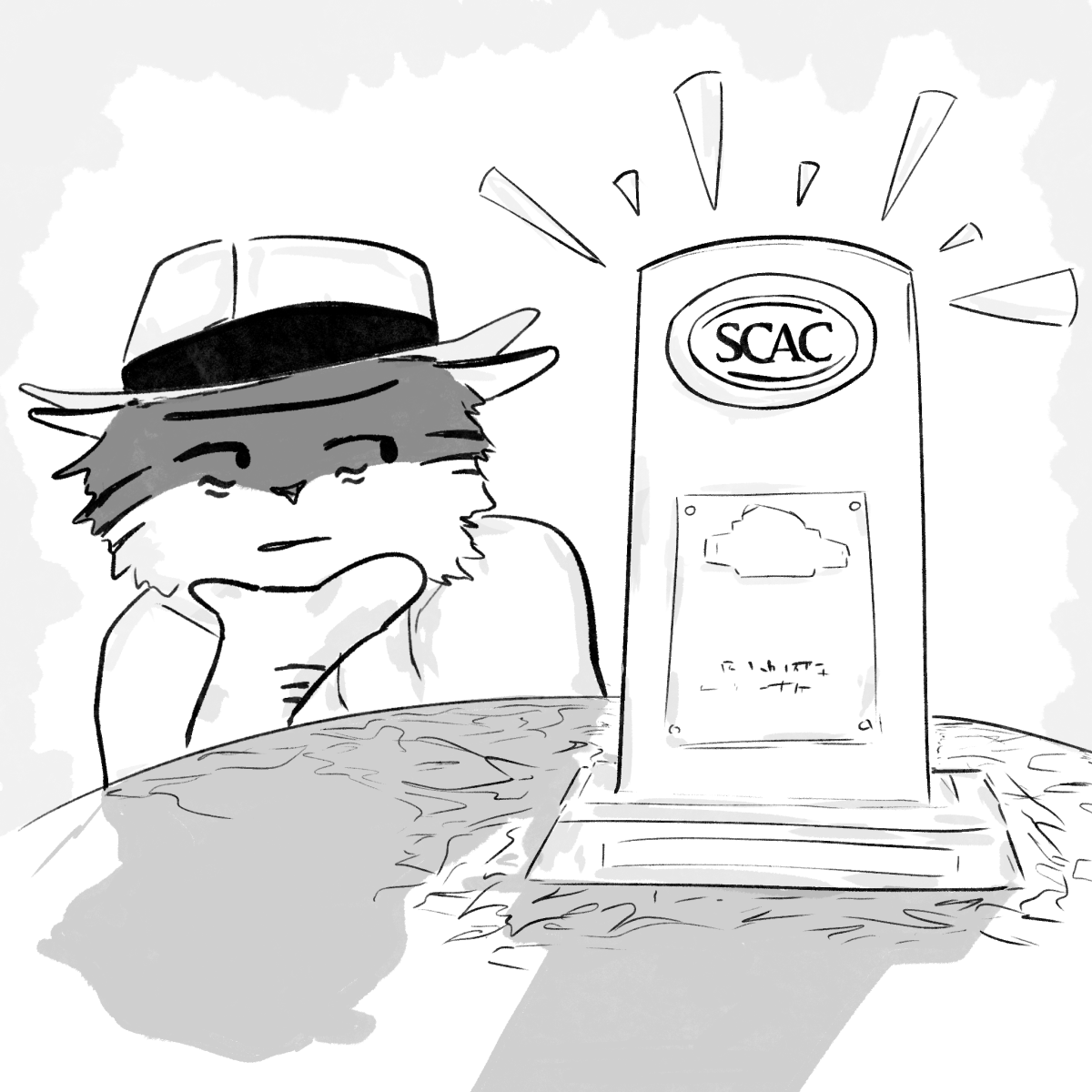Trinity students and faculty met in the Waxahachie Room on the evening of Oct. 17 for a discussion on the conversation of race within sports to talk about the controversy of athletes kneeling in protest during the national anthem.
The conversation came as a result of a discussion between David Tuttle, dean of students, and members of Trinity’s Black Student Union (BSU), who met with Tuttle for a dinner at his home in late September.
“When I had BSU over to the house and was talking about what kind of things they would like to see, they thought having more discussions on campus on important issues mattered,” Tuttle said. “They thought, and I’ve heard this from other student groups as well, that it really shouldn’t be all on the students to come with ideas for conversations or to put programs together and do the planning.”
Tuttle facilitated the conversation on Tuesday night by dividing the group of students into different categories based on their responses to questions about the role of the national anthem in sports and whether or not athletes should stick to sports, as opposed to using their influence to speak out politically.
Overwhelmingly, participants supported the right for professional athletes to kneel, while responses as to whether or not major sports figures should use their influence politically were a bit more skewed.
Tahlar Rowe, president of BSU, felt that while the discussion didn’t necessarily change her opinion, it helped her see the perspective of other students on an issue they all cared about.
“One thing that I did hear was another student who was so passionate about athletes not having a voice and not using their platform. That was interesting for me to hear because I’m the type of person who thinks that [there are situations where] they should and they shouldn’t, and to hear people who were so fervently behind them using their platforms was a different perspective,” Rowe said.
However, the results still remained largely one-sided, as attendees largely stood in support of athletes using their position to speak politically. In an effort to bring the focus on Trinity’s role in the situation, Tuttle posed a question about Trinity’s athletes and protest.
“How would the Trinity community react if a Trinity student athlete were to kneel during the anthem?” Tuttle asked.
On this question, responses were mixed. Some students believed that nothing would really become accomplished, with the entire issue more or less being swept under the rug.
More hopeful and optimistic students believed that kneeling from a Tiger would at least bring a start toward building a more intense discussion about race throughout the school. BSU members were largely disappointed by the fact that Tuesday’s discussion was fairly one-sided.
Khaniya Russell, sophomore history major and vice president of BSU, enjoyed her time at the event but lamented the lack of non-BSU attendance.
“I was hoping to get some more dialogue from people who had views that were different than me. Although I didn’t get that, I still felt like I came out of it more informed and a little more open-minded about having conversations of this nature in the future,” Russell said.
Despite this, Russell and others still believed that their time spent with Tuttle and other faculty was worthwhile. While this event was merely a first step for Tiger students in having a forum to voice their opinions on, it appears to be a step in the right direction.
Tuttle thought the forum revolved around a pertinent topic in the event that he continues a series of discussions such as these with student groups. Russell echoed Tuttle’s sentiments on the importance of such discussions.
“I hope that in the future, more people come out. They’re really engaging, I think Dean Tuttle does a great job of providing questions and just a space for people to come and become more informed about some controversial topics that are happening in our country,” Russell said. “Everyone who comes at the end of the day … [can] just be a part of the conversation.”
Issues of race in sports are complex and dividing, but conversations such as these are useful in closing that gap, whatever size it may be.
Look to Tuttle to arrange for future discussions on controversial and relevant topics, as he encourages all interested students to attend.

